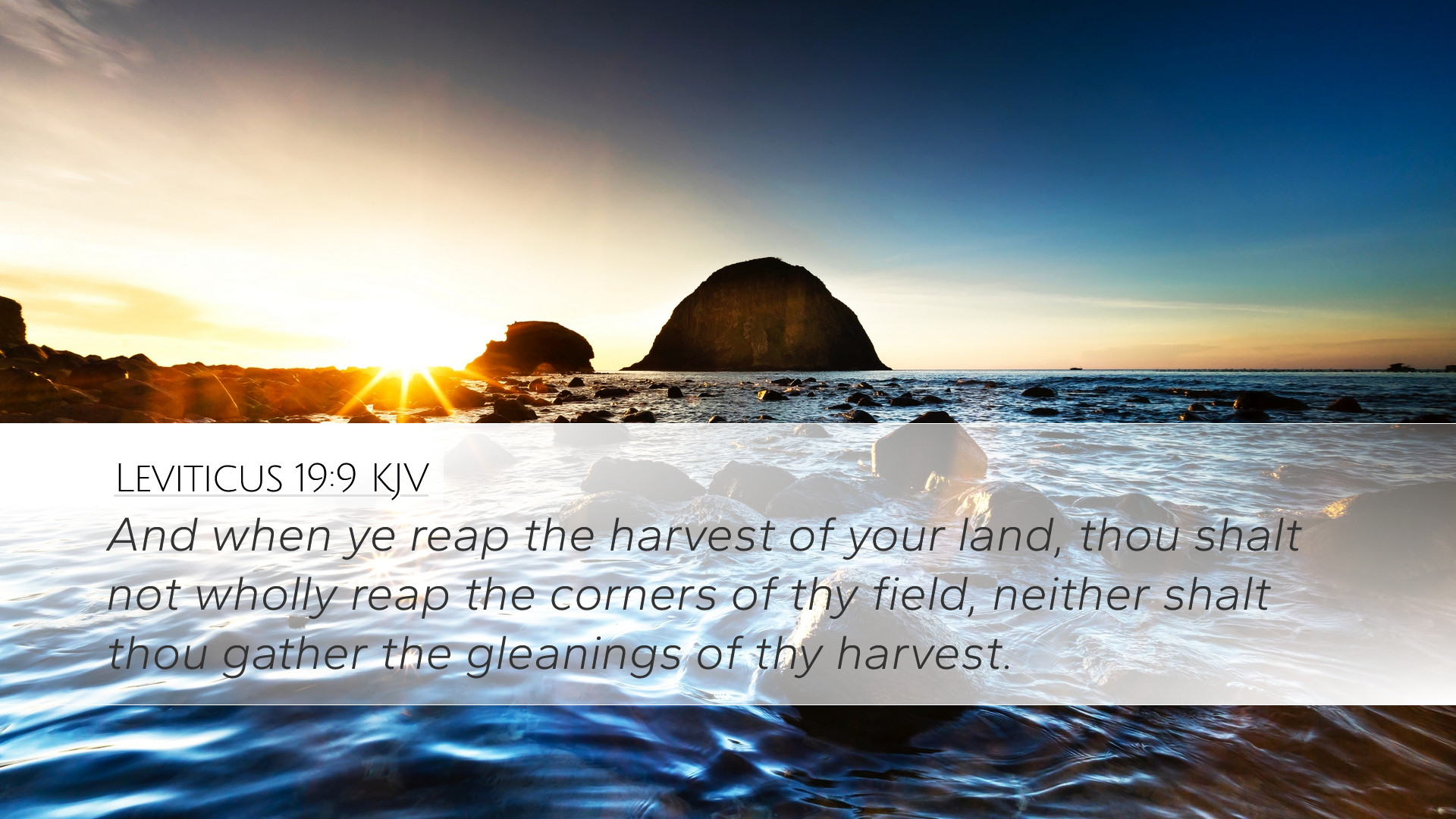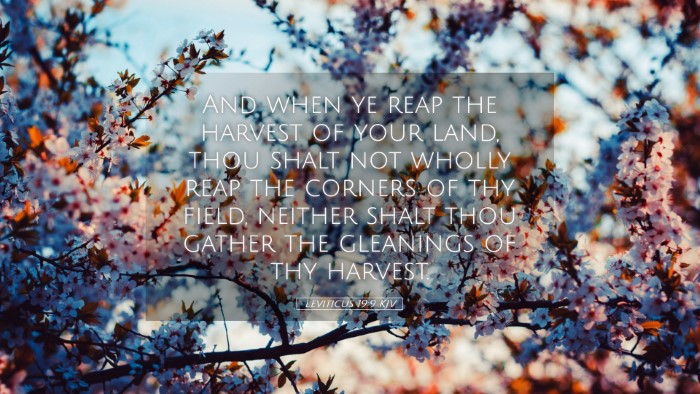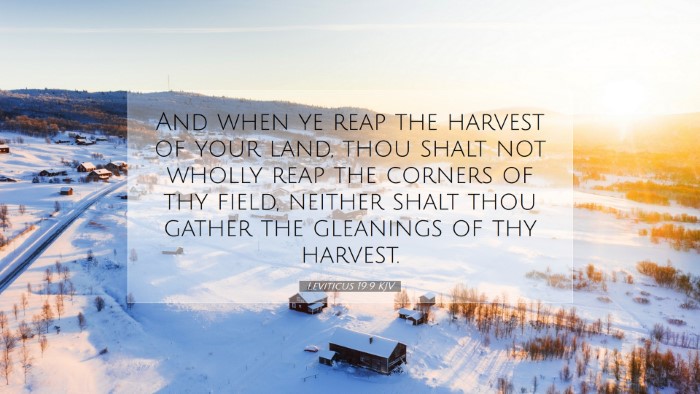Commentary on Leviticus 19:9
Verse: "When you reap the harvest of your land, you shall not reap your field to its very edge, neither shall you gather the gleanings after your harvest." (Leviticus 19:9, ESV)
Introduction
This verse from Leviticus is part of the Holiness Code, a set of laws and ethical guidelines given to the Israelites. It emphasizes God's concern for justice, mercy, and care for the less fortunate in society. The instructions regarding the harvest reflect broader theological themes central to the Hebrew Scriptures.
Divine Principle of Generosity
Matthew Henry's Commentary highlights the idea that God's commands reveal His nature, which involves generosity. By instructing the Israelites to leave portions of their harvest, God not only facilitates the provision for the poor and the stranger but also fosters an attitude of generosity within His people. This act serves as a reminder that all produce ultimately belongs to God, and it encourages stewardship rather than greed.
Albert Barnes elaborates on this theme of generosity by noting that the omission of the corners of the fields represents a tangible way for the Israelites to express their reliance on God’s provision. The act of leaving gleanings serves as an acknowledgment that the harvest is sufficient for both the owner and those in need, thus fostering community solidarity.
Social Justice and Care for the Vulnerable
Adam Clarke emphasizes the societal implications of this law. It is an example of social justice, demonstrating God's concern for the marginalized. The command to leave the edges of the field signifies not just a physical provision but an ethical obligation to care for the vulnerable in society, such as the poor and the alien. This approach advocates for a communal way of life where everyone contributes to and benefits from the community’s resources.
Moreover, Matthew Henry points out that the principle behind this command is rooted in the character of God. God Himself acts as a provider for all, and this law is an extension of His providential care. Believers today are invited to embody this spirit of giving and community care as a reflection of God’s heart.
Covenantal Living
This command is situated within the broader covenantal context of Israel. Albert Barnes notes that the laws given to the Israelites great deal focus on their identity as God's chosen people. Part of living as His people includes embodying His righteousness in daily life. This ethos of leaving gleanings demonstrates an understanding of community interdependence and reinforces the community’s ethical compliance with God's covenant.
Theological Reflection
The implications of Leviticus 19:9 extend into theological realms. It encourages an ethic of abundance rather than scarcity. Adam Clarke reflects upon the spiritual significance of not taking all for oneself; it teaches contentment and trust in God’s provision. The act of leaving a portion of the harvest allows the owner to experience the joy of giving and maintaining a gracious openness to the needs of others.
As Matthew Henry suggests, this has implications for contemporary believers who are called to support the cause of the less fortunate as an outworking of their faith. It challenges the culture's inclination toward self-sufficiency and demonstrates the importance of community welfare.
Application for Today’s Believers
- Generosity: Believers are called to reflect God’s generosity by actively seeking ways to assist those in need.
- Social Responsibility: The church community must rally together to ensure that the needs of the vulnerable are met, echoing the Biblical principle of leaving gleanings.
- Community Engagement: Engaging in local outreach programs can serve as a modern application of the principles found in Leviticus 19:9.
- Trust in God: Like the Israelites, modern believers should practice trust in God’s provision, knowing that He will provide for their needs as they share with others.
Conclusion
Leviticus 19:9 serves as a rich text that informs our understanding of not only agricultural practices in ancient Israel but also ethical behavior that transcends time. Through insights drawn from public domain commentaries, it becomes evident that the core message of this verse encourages a lifestyle of generosity, social justice, and community interdependence, foundational concepts that remain relevant for believers today.


